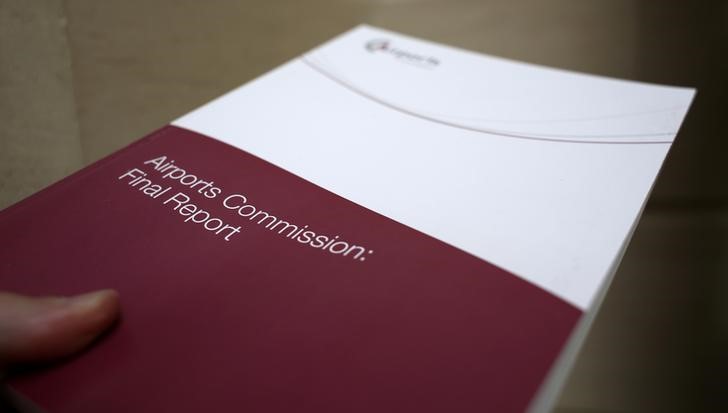By Kate Holton
LONDON (Reuters) - The government delayed on Thursday the politically-charged decision on where to build a new airport runway, prompting angry business leaders to accuse David Cameron's government of putting short-term politics over the long-term national interest.
The Prime Minister had promised to say by the end of the year whether he backed a 23-billion-pound runway at Heathrow Airport after a 3-year independent review named the site in densely populated west London as the preferred location.
Instead Cameron's government said late on Thursday it needed more information on the environmental impact before it could sign off on an issue that has split the party and is already 25 years in the making.
A delay by around six months mean the final decision can now be made after a London mayoral election in May, where the Conservative candidate and the incumbent Boris Johnson are both deeply opposed to a new runway at Heathrow.
"Business leaders will be tearing their hair out at the news that, yet again, a decision on expanding the UK's airport capacity has been delayed," Simon Walker, Director General of the Institute of Directors, said in a statement.
The delay will give Cameron some respite from environmentalists and voters in his traditional support base around Heathrow, to the west of London, and Gatwick, the alternative option to the south, who are against any expansion.
Cameron ruled out building a new runway at Heathrow Airport in 2009 while campaigning for office, saying "no ifs, no buts", leaving him personally vulnerable if the government opts for the west London site.
"The case for aviation expansion is clear -- but it's vitally important we get the decision right so that it will benefit generations to come," said Transport Minister Patrick McLoughlin.
"We will undertake more work on environmental impacts, including air quality, noise and carbon."
The opposition Labour Party said Cameron had acted on political calculations rather than concern for the environment while the Scottish National Party said Cameron had "bottled it".
The issue of the environmental impact had been raised earlier this month when a parliamentary committee said that Heathrow should only be allowed to expand if it shows it can comply with a set of conditions.
Those included a ban on night flights, a legal commitment on air quality and a requirement for what is Europe's busiest airport to demonstrate that an expanded Heathrow would be less noisy than a two-runway Heathrow.
The airport said it was confident that expansion could be delivered within the environmental limits while Gatwick, which is still campaigning to be allowed to expand, said it was now clear that its rival was no longer a viable option.
Heathrow, which is operating at full capacity, says a new runway would add 100 billion pounds to the economy and more than 120,000 new jobs. Business groups say expansion is vital if Britain is to keep up with the likes of Paris and Amsterdam in building ties to emerging markets.
"We urgently need to increase our runway capacity to spur trade growth, investment and job creation," said Carolyn Fairbairn of the Confederation of British Industry (CBI).

"We cannot fall into the habit of simply commissioning new evidence, instead of the Government taking the tough decisions needed at the end of the process."